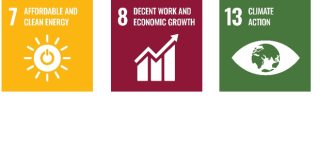Can Legal Obstacles Delay Japan's Plans to Achieve Carbon Neutrality?
- Share
- Tweet
- Send to email
A recent study explores legal and economic barriers to renewable energy transition and carbon pricing initiatives
Japan’s green transformation (GX) strategy aims to achieve carbon neutrality by 2050 through growth-oriented carbon pricing, but some parties face litigations against renewable energy projects. A recent study analyzed Japan’s GX Promotion Act and compared it to the United States’ clean energy policies, including both successes and setbacks. The findings stress that early stakeholder involvement and cooperation with local communities are essential for successful renewable energy projects and a seamless green transition.
As nations worldwide race to meet the 2050 carbon neutrality target, Japan has emerged as a key player in implementing ‘green transformation (GX)’—a comprehensive shift from fossil fuel dependency to renewable energy as a primary power source. Unlike other countries, the Japanese government views this shift not only as an environmental imperative but also as an opportunity for economic growth. Central to this vision is the establishment of a growth-oriented carbon pricing system, enacted in recent groundbreaking legislation such as the GX Promotion Act in 2023.
However, efforts to accelerate this transition have met unforeseen challenges. The fast and large-scale deployment of renewable energy infrastructure has given rise to both environmental and social issues. For example, reflected light from solar panels and noise from wind turbines have disrupted daily life in some communities, while wind turbine blades pose a threat to endangered bird species. In both Japan and the United States, such issues have led to legal action against renewable energy projects. These developments highlight the urgent need to accelerate the implementation of carbon pricing mechanisms while proactively addressing local-level frictions.
In this vein, Professor Hiroshi Kobayashi from the Faculty of Economics and Law and the Office of Sustainability at Shinshu University, Japan, conducted a comprehensive analysis of Japan’s carbon pricing initiatives and its challenges. His research, published in Volume 40 of the Journal of Environmental Law and Litigation on June 2, 2025, examines the legal and economic frameworks established under Japan’s GX Promotion Act and compares them to clean energy transition policies in the United States.
The analysis reveals that Japan’s current implementation timeline may be insufficient to meet climate goals. It focuses on two central components of Japan’s growth-oriented carbon pricing: the emissions trading scheme (GX-ETS) and the fossil fuel levy system. Although the GX-ETS was introduced as a voluntary program in 2023, mandatory participation for large emitters is scheduled for 2026, with paid auctions for the power generation sector starting in 2033. Similarly, the fossil fuel levy system will be operational starting from 2028, meaning that its contributions to the 2030 targets will be negligible.
In addition, Prof. Kobayashi adopts a comparative legal analysis to examine patterns of renewable energy litigation in Japan and the United States, assessing how legal challenges may impact project development. He observes that although Japan experiences fewer ecosystem-based lawsuits—partly due to more restrictive standing requirements—human-centered disputes, particularly those concerning scenic rights and noise pollution, continue to pose substantial obstacles. “It is essential to mitigate the risk of litigation by fostering renewable energy projects in symbiosis with local communities, in order to expedite the full-scale implementation of growth-oriented carbon pricing," he emphasizes. His research highlights that successful renewable energy projects require both early stakeholder engagement and transparent consultation with local communities, as evidenced by the contrasting outcomes of the failed Cape Wind project and the successful Block Island offshore wind farm in the United States.
The article also highlights the disparity in scale between Japanese and American climate investments. While Japan plans to issue 20 trillion yen in GX Economic Transition Bonds over the next decade, the U.S. Inflation Reduction Act provides an estimated US$369 billion in climate investments—reflecting a more aggressive financial commitment to the clean energy transition, which will be changed by the One Big Beautiful Bill Act under the Trump administration.
According to Prof. Kobayashi, the delayed implementation of carbon pricing mechanisms conflicts with the urgency outlined in the Intergovernmental Panel on Climate Change’s Sixth Synthesis Report. This report strongly emphasizes that actions taken this decade will have a decisive impact on humanity’s future. Prof. Kobayashi mentions, “To achieve a decarbonized society by 2050, I believe that growth-oriented carbon pricing, including emissions trading systems and fossil fuel levies, needs to be fully implemented at an early stage.” Worth mentioning, the GX Promotion Act was amended in May 2025, requiring companies with carbon dioxide emissions of 100,000 tons or more per year to participate in emissions trading.
Although carbon pricing and renewable energy-related litigations are not directly linked, minimizing litigation risks associated with renewable energy projects is essential to ensure their timely completion, thereby supporting a seamless green energy transition. To summarize, this study offers invaluable insights not only for Japan but for all nations committed to realizing carbon neutrality goals.
|
Reference |
||
|
Title of original paper: |
Carbon Pricing for GX and Renewable Energy: The Case of Japan and Comparisons to the United States |
|
|
Journal: |
Journal of Environmental Law and Litigation |
|
|
URL: |
||






